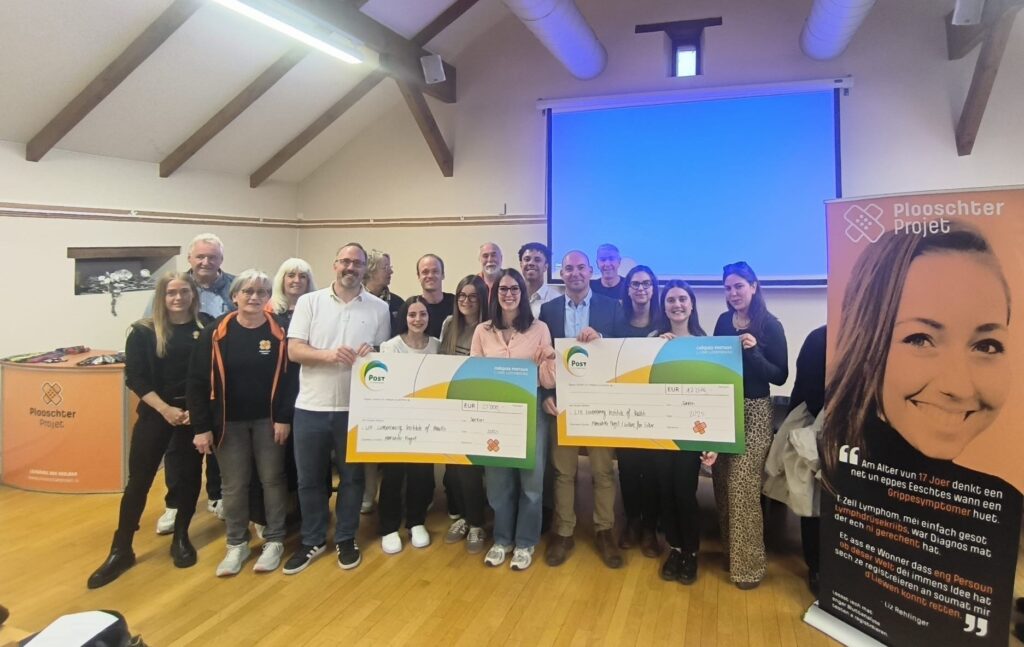News
An unwavering commitment to diabetes research
Dr Guy Fagherazzi awarded international prize “Prix Auguste Loubatières”

On March 21st, Dr Guy Fagherazzi, Director of the LIH Department of Precision Health (DoPH) and leader of the Deep Digital Phenotyping (DDP) research group, was rewarded for his outstanding contribution to diabetes research through the bestowal of the prestigious “Prix Auguste Loubatières 2024” by the Société Francophone du Diabète (SFD) during their annual meeting in Toulouse, France. The prize is a testament to Dr Fagherazzi’s exceptional work spanning from epidemiology to precision diabetology, revolutionising our understanding of the disease and its management.
Following a double degree in statistics engineering and a Master’s in epidemiology, Dr Fagherazzi began an international research career in the area of personalised prevention and precision health for individuals with diabetes.
He dedicated his early research to the identification of innovative lifestyle-related risk factors for type 2 diabetes (T2D), particularly in women, leveraging extensive data from international cohorts. Among his many notable findings were the revelation of the detrimental impact of sweetener consumption on the onset of T2D, the elucidation of risk factors based on blood group, functional laterality and handedness, as well as the identification of the protective role of chronic hyperglycemia in the onset of migraines in women.
Transitioning towards a more clinical and patient-centric research, Dr Fagherazzi joined the LIH in 2019, where he established his own Deep Digital Phenotyping research group. He spearheaded numerous initiatives in digital diabetes epidemiology, harnessing Big Data and artificial intelligence methods to collect insights generated by individuals with diabetes from digital sources. A notable study in this respect was the World Diabetes Distress Study, utilising online patient-generated data to elucidate the burden of diabetes-related distress worldwide. Since 2020, he has been focusing on the identification of innovative vocal biomarkers associated with a symptom or disease, based on voice recordings. Together with his team, he launched “Colive Voice”, the flagship digital study that led to the identification of distinct voice signatures to distinguish people suffering from type 1 diabetes (T1D) and T2D from healthy individuals. This work then led to the development of an initial proof of concept for non-invasive diabetes screening based solely on voice and leveraging AI methods, which will ultimately help reduce the number of undiagnosed cases of diabetes worldwide.
Beyond his groundbreaking research, Dr Fagherazzi is deeply committed to supporting the diabetes research community and is extensively involved in collaborative endeavours. He played a pivotal role in the establishment of the SFDT1 cohort study led by the SFD, aiming to unravel the complexities of T1D complications, and has been instrumental in shaping the landscape of diabetes epidemiology through his editorial contributions and advisory roles. Of note, he was a member of the scientific board of the SFD itself between 2018 and 2022, and has been an editor of the international journal “Diabetes & Metabolism” since 2015.
I am deeply honoured to have been awarded the Auguste Loubatières Prize, which is a testament to our work and to our commitment to driving progress towards a future where diabetes is better understood, managed and, ultimately, conquered, thereby improving the lives of millions of individuals struggling with this condition on a daily basis,
states Dr Fagherazzi.
The “Prix Auguste Loubatières” is awarded yearly to the best researcher or clinician under the age of 45 from a French-speaking country, for a body of work or a particularly remarkable discovery in the field of diabetes or metabolic diseases. The prize is bestowed during the SFD annual congress, which attracts over 4,000 participants every year.






